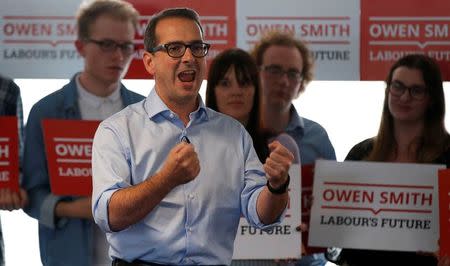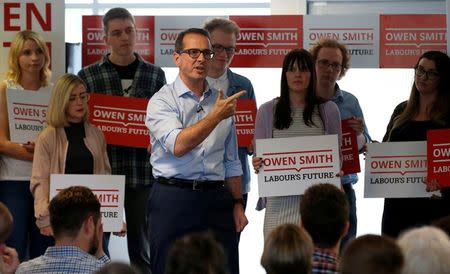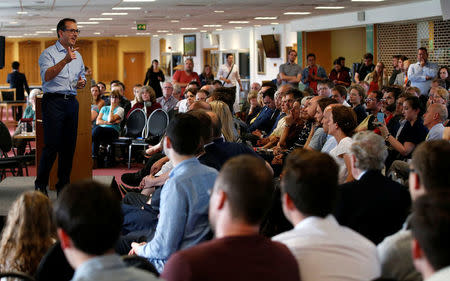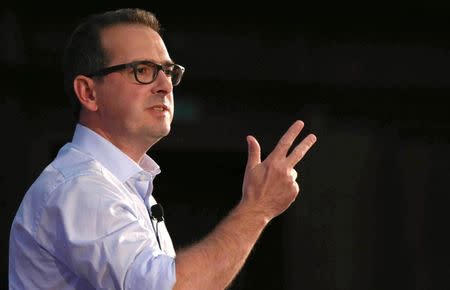Labour leadership contender proposes wealth tax
LONDON (Reuters) - The man seeking to take become leader of Britain's Labour Party has proposed a wealth tax on the country's highest earners as part of what he cast as a "socialist revolution" to woo Labour supporters, The Times newspaper reported. Owen Smith, who is seeking to replace socialist Jeremy Corbyn as Labour leader, promised a public spending spree funded by 200 billion pounds of extra borrowing and taxes on business and the wealthy that would net 13.5 billion pounds a year, the newspaper said. Labour has been locked in a bitter power struggle since the June 23 vote to leave the European Union, with critics of Corbyn saying he did not work hard enough to persuade the party's voters to back remaining in the bloc. Smith, who has said Britons should vote again on leaving the EU once a Brexit deal is decided, is running against Corbyn in a leadership contest triggered by Labour lawmakers who said they had lost confidence in Corbyn's ability to lead the party and win an election. Corbyn, however, remains hugely popular among the party's membership who will ultimately decide. "We need a revolution," Smith was quoted as saying by the newspaper. "Not some misty-eyed, romantic notion of a revolution where we are going to overthrow capitalism and return to a socialist nirvana — a cold-eyed, practical socialist revolution where we build a better Britain." Smith's proposals include reversing cuts to corporation tax and capital gains tax and bringing back the top rate of income tax of 50 pence on the pound, The Times said. The money would be spent on ending a freeze on public sector pay and on a 12 billion pound boost to spending on the state-funded National Health Service. Smith also proposed a 15 percent tax on the investment earnings of anyone with a salary of more than 150,000 pounds a year. Such a tax would be applied to share dividends and buy-to-let property, The Times said. The right-leaning Daily Mail newspaper ran a story casting the speech as "The second longest suicide note in history", a reference to Labour's manifesto before the 1983 election in which the party was soundly beaten by Margaret Thatcher's Conservatives. (Reporting by Guy Faulconbridge; editing by Michael Holden)

 Yahoo News
Yahoo News 







